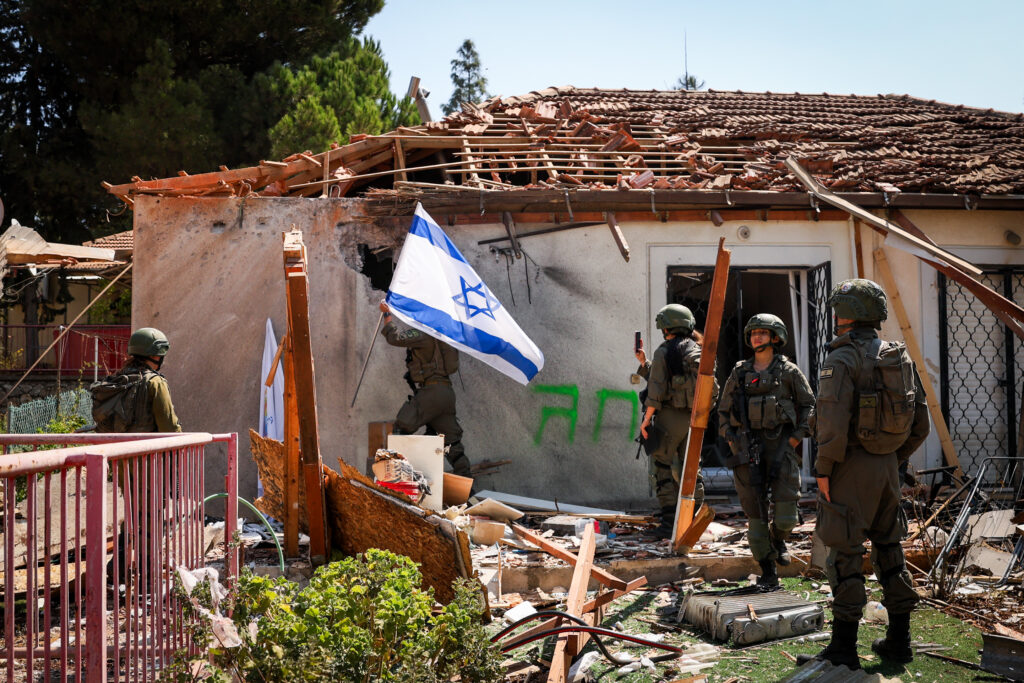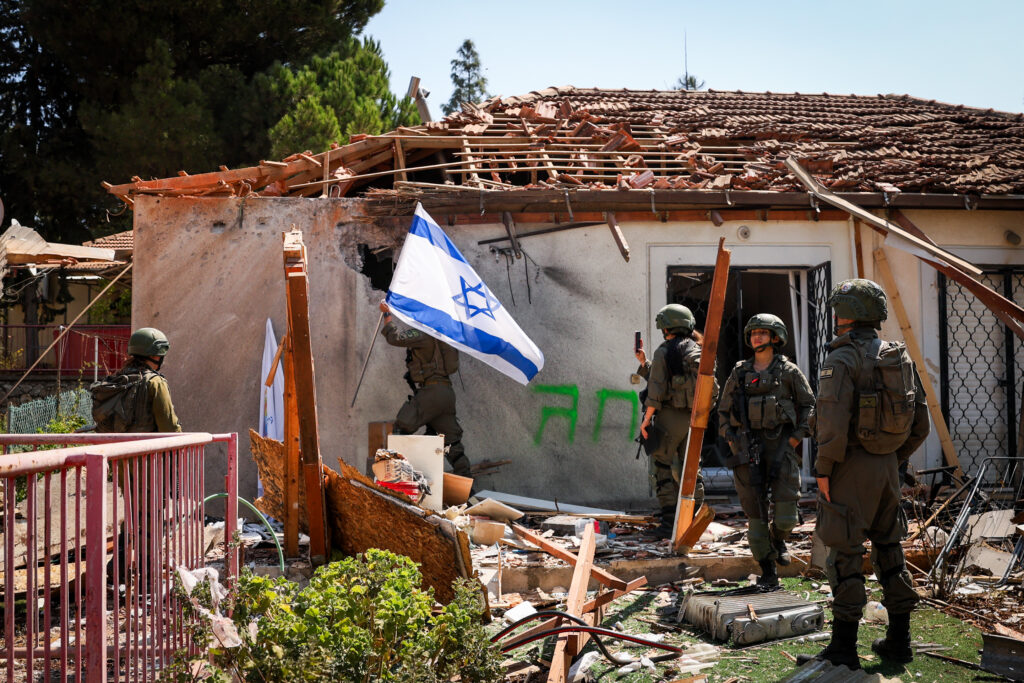
Israel Update: Netanyahu Rejects Ceasefire Reports, Vows to Continue Fight Against Hezbollah
Call for 21-Day Israel-Lebanon Ceasefire Overlooks Hezbollah’s Involvement
A coalition of nations, including the U.S., EU, and nine other countries, issued a joint call on Wednesday for a 21-day ceasefire along the Israel-Lebanon border. The proposed ceasefire aims to create space for diplomatic negotiations to resolve the ongoing conflict. However, the appeal notably did not mention Hezbollah, the terrorist group that has been launching rockets at Israel since October 8.
Critics, such as Jason Brodsky from United Against Nuclear Iran, highlighted the flaw in the statement, emphasizing that it disregards Hezbollah’s significant control in Lebanon. “The government of Lebanon has no real agency over this conflict,” Brodsky remarked. Similarly, Mark Dubowitz of the Foundation for Defense of Democracies noted that the proposal ignored the roles of Hezbollah and Hamas, key actors in the conflict.

While senior U.S. officials stressed that the ceasefire would allow time for diplomacy and efforts to return hostages, they sidestepped the issue of Hezbollah’s involvement, instead focusing on negotiations with the Lebanese government. Some experts argue this approach overlooks the reality that Hezbollah, not the Lebanese government, is driving the conflict.
The joint statement also warned of the risk of wider regional escalation and urged both Israel and Lebanon to endorse the ceasefire immediately. Despite these diplomatic efforts, many believe that the failure to address Hezbollah’s role limits the effectiveness of the proposed ceasefire and its potential to bring lasting peace.
Netanyahu Government Dismisses Claims of Hezbollah Ceasefire Deal
Israeli Prime Minister Benjamin Netanyahu has firmly denied claims that his government is considering a ceasefire agreement with Hezbollah. In a statement issued on Thursday, Netanyahu’s office clarified that the prime minister has not responded to an American-French proposal regarding the conflict.
“The reports of a ceasefire are false. This is a proposal put forward by the U.S. and France, but the prime minister has not given any response,” his office announced as Netanyahu was heading to New York for an upcoming speech at the UN General Assembly.
Netanyahu’s office further dismissed suggestions that the Israeli military had been instructed to de-escalate operations in northern Israel. “The prime minister has ordered the IDF to continue their military operations with full force according to the plans presented to him,” the statement read. It also reaffirmed that operations in Gaza would not cease until all military goals are achieved.
Foreign Minister Israel Katz added his voice to the discussion via social media, stating, “There will be no ceasefire in the north. We will continue our fight against Hezbollah until we secure victory and ensure the safe return of northern residents to their homes.”
The denial of a ceasefire comes as Netanyahu’s coalition rejected the U.S.-France call for a 21-day ceasefire, aimed at creating room for diplomatic negotiations. Finance Minister Bezalel Smotrich emphasized that the northern conflict should end only with the dismantling of Hezbollah’s ability to threaten Israeli civilians.
The U.S. and several international allies, including European nations and Gulf states, have called for an immediate ceasefire along the Lebanon-Israel border, although they did not make direct references to Hezbollah in their official statements.
Israel Warns Citizens of Potential Threats Leading Up to October 7 Anniversary
As the anniversary of the October 7 Hamas attacks nears, Israel’s National Security Council (NSC) has issued a heightened warning about possible terrorist activity targeting Jewish and Israeli individuals around the world.
In a statement issued on Wednesday, the NSC warned that terrorist groups may view the upcoming anniversary as a symbolic date to launch attacks. “In our assessment, October 7 is likely to serve as a significant milestone for terrorist organizations,” the agency stated in its advisory, which was included in a travel warning for Israeli citizens.
The council indicated that it expects both organized and individual efforts to carry out attacks against Israeli and Jewish targets globally to increase during this period. In light of ongoing threats from Iran and its Lebanese proxy Hezbollah, the NSC urged citizens to adhere strictly to security recommendations posted on the agency’s website.

The advisory also cautioned Israelis to avoid disclosing personal information online, especially for those linked to Israel’s security forces, given the risk of identity-based targeting. The NSC additionally warned citizens about the dangers of kidnapping, advising caution in interactions with unfamiliar individuals, particularly in online spaces.
The agency reaffirmed that travel to countries like Iran, Iraq, Yemen, and Lebanon is banned under Israeli law due to the high risks posed by terrorism in these regions. The warning also extended to several other countries, including Pakistan, Afghanistan, and Turkey.
In situations where citizens perceive a terror-related threat, the NSC advised first contacting local authorities and then reporting the incident via the council’s designated hotline.
In an annual report released earlier this year, the NSC highlighted that numerous plots targeting Israeli interests overseas had been thwarted, and it continued to classify the threat to Israeli citizens abroad as “extremely high.”
The post Israel Update: Netanyahu Rejects Ceasefire Reports, Vows to Continue Fight Against Hezbollah appeared first on Israel365 News.
Israel in the News